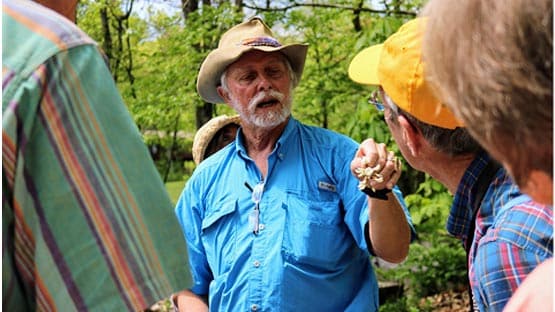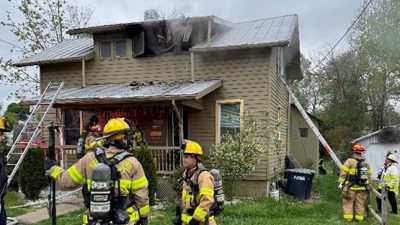
Virginia Gov. Glenn Youngkin announced $500 million in new funding for the continued transformation of the state’s behavioral health system, including the expansion of school-based mental health services on Thursday.
The announcements came one year after the governor introduced his Right Help, Right Now plan for Virginia. In 2023, Mental Health America ranked Virginia almost last in the nation for youth mental health.
“After a year of implementing critical changes in our mental and behavioral health system through my Right Help, Right Now plan, we are forging ahead with additional RHRN funding and a Youth Mental Health strategy to assist and support our next generation of Virginians,” said Youngkin. “It’s clear that young Virginians face a myriad of challenges ranging from addictive social media platforms to an increasingly dangerous opioid epidemic to mental health challenges, and we need to offer support.”
The governor also outlined a Youth Mental Health Strategy and legislative package that would limit social media platforms to help protect children.
“We’ve seen tremendous progress over the last year as we have continued to build our crisis continuum of care, expand community-based services, strengthen our workforce, and modernize our systems,” said Nelson Smith, Commissioner of the Virginia Department of Behavioral Health and Developmental Services. “This was the result of a lot of hard work and creative and collaborative thinking by staff from across our system and state government.”
Secretary of Health and Human Resources John Littel said that year two of the initiative will focus on children’s mental health.
Year one highlights of RHRN
- Continued growth of the 988 suicide and crisis lifeline system through a marketing campaign
- Launch of a behavioral health reserve corps of volunteers
- Awarded funding to build emergency room alternatives
- Expanded waiver slots for individuals with developmental disabilities on the priority one waitlist
- Additional compensation for targeted state hospital staff
Proposal: Youth Mental Health Strategy
- In 2023, Mental Health America ranked Virginia 48th in the nation for youth mental health.
- Children spend on average nearly five hours daily on social media; recent studies have suggested that children who spend more than a few hours per day on social media have double the risk of poor mental health.
- Through budget proposals, legislation and executive action, the youth mental health strategy will address critical components and harmful aspects of social media on our youth.
Strategy: Social media and youth
- Protect minors from TikTok in the Commonwealth of Virginia
- Protect the privacy of all children under 18 years of age from social media companies by banning targeted advertising to children, selling children’s data or creating a marketing profile of a child without parental consent
- Prohibit social media companies from using addictive practices, designs or features, such as auto-playing videos, gamification and virtual gifts, on children
- Give parents the ability to implement guardrails on minor’s social media use and limit social media companies from disrupting teens’ sleep by knowingly or intentionally keeping children on their phones
Strategy: Inside schools
- Expand eligibility for school-based mental health services to students across Virginia using a waiver and provide technical assistance and support to localities that provide matching funds and wish to utilize these services
- Require school divisions who monitor student Internet use to disclose what activity is tracked and monitored, obtain parental consent and notify parents when a safety alert is issued
- Expand the behavioral health workforce in schools and other community settings
- Increase access to care by providing funds for tele-behavioral health for children in grades 6-12, with their parents’ permission, as well as in public colleges
Strategy: Behavioral health care settings
- Ensure that Virginia families have the right to be in close physical proximity to a relative during a medical, mental health or substance use emergency and provide the relative with previously prescribed medications
- Empower parents with the right to consent for their child to receive inpatient psychiatric care and choose where their child receives inpatient psychiatric care, and exclude minors from code-mandated state psychiatric treatment
Budget priorities
Youngkin proposed $500 million in new funding for his biennium budget bringing the commitment to nearly $1.4 billion.
- $307 million to provide 3,440 waiver slots, a slot per person on the Priority 1 Waitlist
- $23 million to expand access to school-based mental health services for children, including telehealth
- $46 million to meet the three-year target of emergency room alternatives, such as crisis receiving centers and crisis stabilization units, and publicly funded mobile crisis response teams to ensure that people have someone to respond and somewhere to go in a crisis
- $10 million for partnerships with hospitals to build specialized emergency rooms for psychiatric patients called comprehensive psychiatric emergency programs
- $23 million to ease law enforcement burden, including expanding alternative transportation
- $58 million for building a best-in-class behavioral health workforce through salary increases in state hospitals, behavioral health loan repayment, and more clinical training sites and residency slots
- $28 million in opioid abatement and response initiatives including a campaign to reduce youth fentanyl poisoning, wastewater monitoring, naloxone availability, and services for those with substance use disorder










